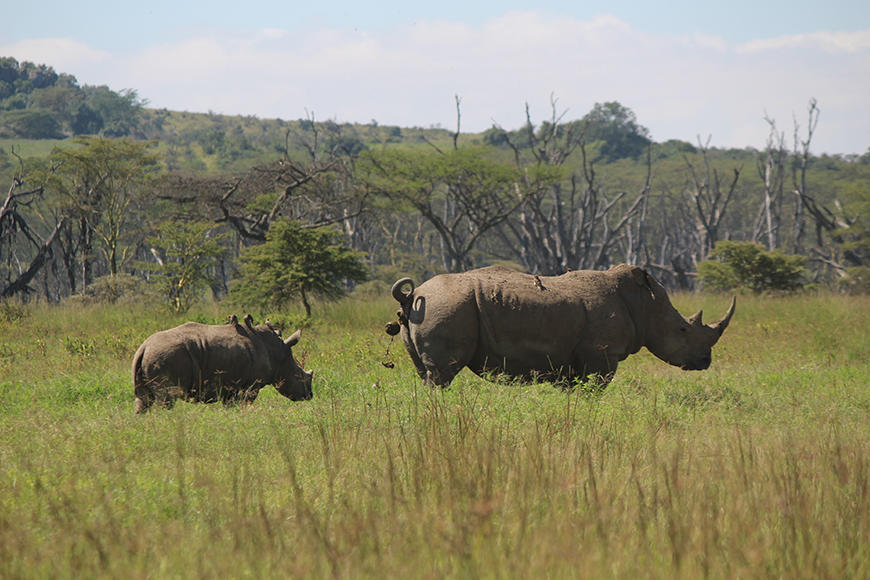
We challenged early career and postgraduate researchers to capture their work in a single image. Sarah Scott, our winner, shares the story behind hers.
What’s your research focus, and what impact do you hope it will have?
My PhD research is on the social behaviour, ecology and genetics of white rhinos, and aims to understand how these factors influence reproductive success in females. I’m interested in this because female white rhinos do not breed reliably in captivity, and variation in reproductive success also exists between wild populations. Understanding what causes variation in their reproduction will provide important information that could help to improve their conservation and breeding management. Knowsley Safari Park and the International Rhino Foundation provide me with funding support to carry out this research on wild white rhinoceros populations in Kenya, where I work in collaboration with scientists and rangers from the Kenya Wildlife Service.
I hope that my research will help to engage people with rhino conservation and the novel methods that we can use to obtain important scientific data on wildlife, as well as providing new information on white rhino social behaviour, ecology and genetics. This information can be used by captive breeding programmes and wildlife authorities to develop new management strategies that aim to improve the conservation and breeding success of white rhinos.
Tell us about your winning image, “Data Incoming!”

This photograph shows the moment I obtained a dung sample from a white rhino called Rose, in Lake Nakuru National Park. She was the final rhino I needed a sample from in that population, so this photograph captures a very important moment! I use dung samples to non-invasively obtain a source of DNA material from each white rhino in my study. This allows me to uncover the genetic structure of each population, and determine important measures of population viability, such as how closely related individuals are to each other. This information will contribute towards our understanding of the role of genetics in white rhino reproductive success.
Fieldwork in Kenya involves a lot of long hours and patience. I spend most of my time driving around searching for rhinos, and then once I find them, I can spend hours waiting to get a dung sample. Luckily, I have the company and assistance of skilled rangers, who help me to find and identify each individual rhino. I get to record some fascinating social interactions between the rhinos, and have witnessed huge groups of up to 18 individuals before. I also get to see a lot of other amazing wildlife in the process, such as elephants, cheetah and African wild dogs, which is definitely a bonus.
What was it like participating in a research photography competition?
I think it is always worth applying to things like the Images of Research competition. I definitely did not think that I would win, as I don’t consider myself to be a great photographer. But, the competition is less about the artistic quality of the image, and more about how it can be used to explain what your research is about.

Events like the Images of Research competition are a great way for PhD students to practice communicating their research to the public. I have thousands of pictures of rhinos, but choosing one that really shows what my research is about, and what my days revolve around, was more challenging. I had to think about how an image could engage with the public, whilst also communicating my PhD research, which is something I’ve never had to do before.
In terms of next steps for my research, at the moment I spend a lot of time sitting at my desk analysing data I’ve collected in Kenya. I’ve also just started some of my genetic work, using DNA obtained from white rhinos in the UK, which means I get to spend a bit of my time in the lab. I’m planning on heading out to Kenya again at the end of May for my final field season, where I’ll be collecting data on the fourth rhino population included in my PhD research.
You can find out more about Sarah’s research and read her updates from the field by following her on twitter @SarahEScott


